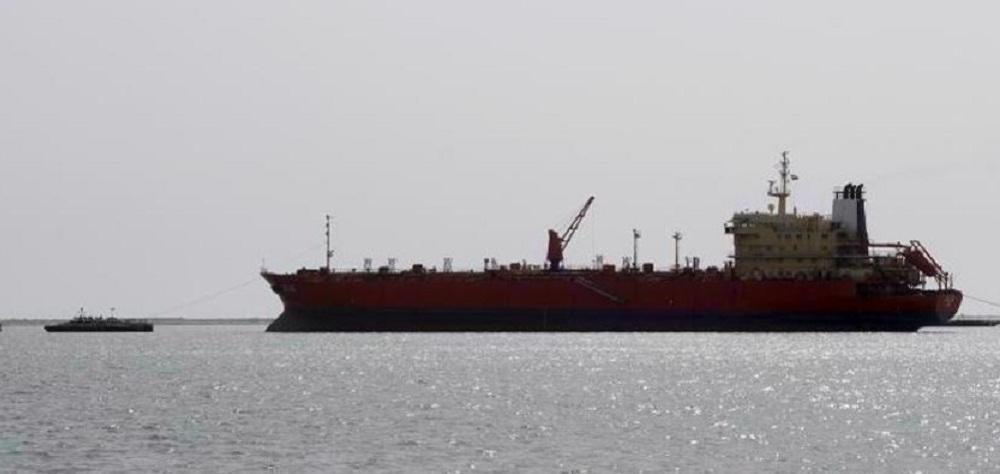Alwaght- Despite an agreement between Yemen's Ansarullah movement and Saudi-led coalition to extend the UN-brokered ceasefire, the latter has not adhere to any of its commitments in terms of the ceasefire. Although humanitarian aid was supposed to be sent to the Yemenis based on the agreements to solve part of the country's problems, Saudi regime has violated the ceasefire hundreds of times with launching airstrikes against targets in Yemen and blocking humanitarian aid as well as Oil tankers from reaching the war-torn country.
While Yemeni people are facing a severe shortage of fuel, the Saudi-led coalition has seized in recent days four fuel ships belonging to Yemen. Commenting on Saudis piracy, Essam Al-Mutawakkel, the spokesman for the National Salvation State Oil Company of Yemen, said Riyadh regime has seized three ships carrying fuel, including two carrying oil for power plants and one carrying diesel, ,despite the fact that all ships has had UN permits.
According to al-Mutawakkel, based on the ceasefire's terms, 54 ships carrying fuel were permitted to dock at Yemeni ports, but so far only 33 ships have reached these ports. According to Ansarullah officials, the United Nations, which oversees the ceasefire, has not pressured the aggressor coalition to let ships carrying oil products into Yemeni ports.
Although the Yemenis want to supply fuel resources from impartial countries, as the spokesperson of the Yemen Oil Company said, the aggressor coalition countries and the United Nations have restricted imports only from the United Arab Emirates (UAE) and have pre-paid the price of ships to the Emirati banks. This happens while the UAE is a member to the Saudi-led coalition against Yemen and with the help of its mercenaries has occupied many oil-rich areas of the impoverished Arab country. The UAE even seeks to occupy these oil and gas resources forever and by dividing Yemen into northern and southern parts, annex them to its territory.
Seizing oil tankers for creating crisis in Yemen
By seizing Yemeni oil tankers Saudi Arabia is trying to put the Yemeni people under economic pressure and create new crises for the National Salvation government led by Ansarullah. Because Yemenis desperately need fuel resources to be able to solve part of their economic problems, and the lack of fuel resources is stopping Ansarullah from solving economic problems. The fuel crisis has severely affected Yemeni civilians' life to the point that bakeries face many problems in baking bread.
According to Reuters news agency, had Yemeni bakers are forces to use firewood as a heating system, causing the wood business to flourish despite the environmental problems that have arisen in this country due to Saud-led aggression.
Moreover, lack of fuel has faced transportation sector with serious challenges, making the domestic situation tenser. Yemen's vital facilities, including hospitals, medical centers, and power plants are also grappling with sever fuel shortage. Fuel shortage has caused price of basic goods to skyrocket. Such high prices in a situation that Yemenis are facing a food crisis and a humanitarian disaster makes governance for Ansarullah too difficult.
Rising public dissatisfaction with Ansarullah, is the policy that the Riyadh regime pursues war-torn and besieged Yemen. Considering that winter is ahead, Saudi Arabia tries to make the living conditions in Yemen more difficult by seizing oil tankers, but the Yemenis have shown in the last eight years that they stand firm against any pressure and will not give in to the demands of the aggressors by seizing several oil tankers.
Self-harm in the face of Ansarullah
The Saudi authorities have come to the conclusion that they cannot easily get out of the self-made swamp in Yemen and must continue in this situation for an indefinite period of time, and on the other hand, they are also sure that Ansarullah will not accept the half-term ceasefire of the United Nations, which will not achieve any results and the resistance movement may resume its retaliatory operations against Saudi kingdom. Therefore, by seizing the oil tankers, Saudis deliberately are forcing Ansarullah to carry out limited operations against Aramco oil facilities. Doing this, Saudis will kill two birds with one stone. On the one hand they will blame Ansarullah as the violator of the truce, and on the other hand, will paint the resistance movement as an destabilizing actor at the international scene. Because any attack on Saudi oil facilities at the time being, when the world is facing an energy crisis due to the effects of the Ukraine war, can lead to an increase in the price of oil, and the Westerners, who are trying to reduce the price of energy carriers, will get angry with Ansarullah. Afterwards, Saudis will try to persuade the US to provide them with more anti-missile systems in order to secure the oil facilities so that they can defend their interests, even though these systems have been ineffective so far and have not been able to intercept Ansarullah's missiles.
Despite Saudi regime's warmongering policies, Ansarullah has always been vigilant and has put a balanced response strategy in front of the crimes of the coalition of aggressors and tried to prevent further tensions. If Saudi Arabia continues its disruptions, Ansarullah can take advantage of field options to meet fuel needs, and by equipping its forces in the oil-rich areas of Shabwa and especially Marib province, can bring these areas under its control. These provinces have enough oil and gas reserves that can solve a large part of the problems of the Yemenis in the current situation, and in the meantime, some developments have recently occurred on the front, which are in favor of Ansarullah. Due to the differences between the Emirati and Saudi mercenaries in the southern provinces of Yemen, some groups are separating their ways from the aggressors. Based on this, the Muslim Brotherhood groups in the south of Yemen have a deep rift with the Saudi-led Presidential Council that is a good opportunity for Ansarullah make advance in the occupied territories.



























